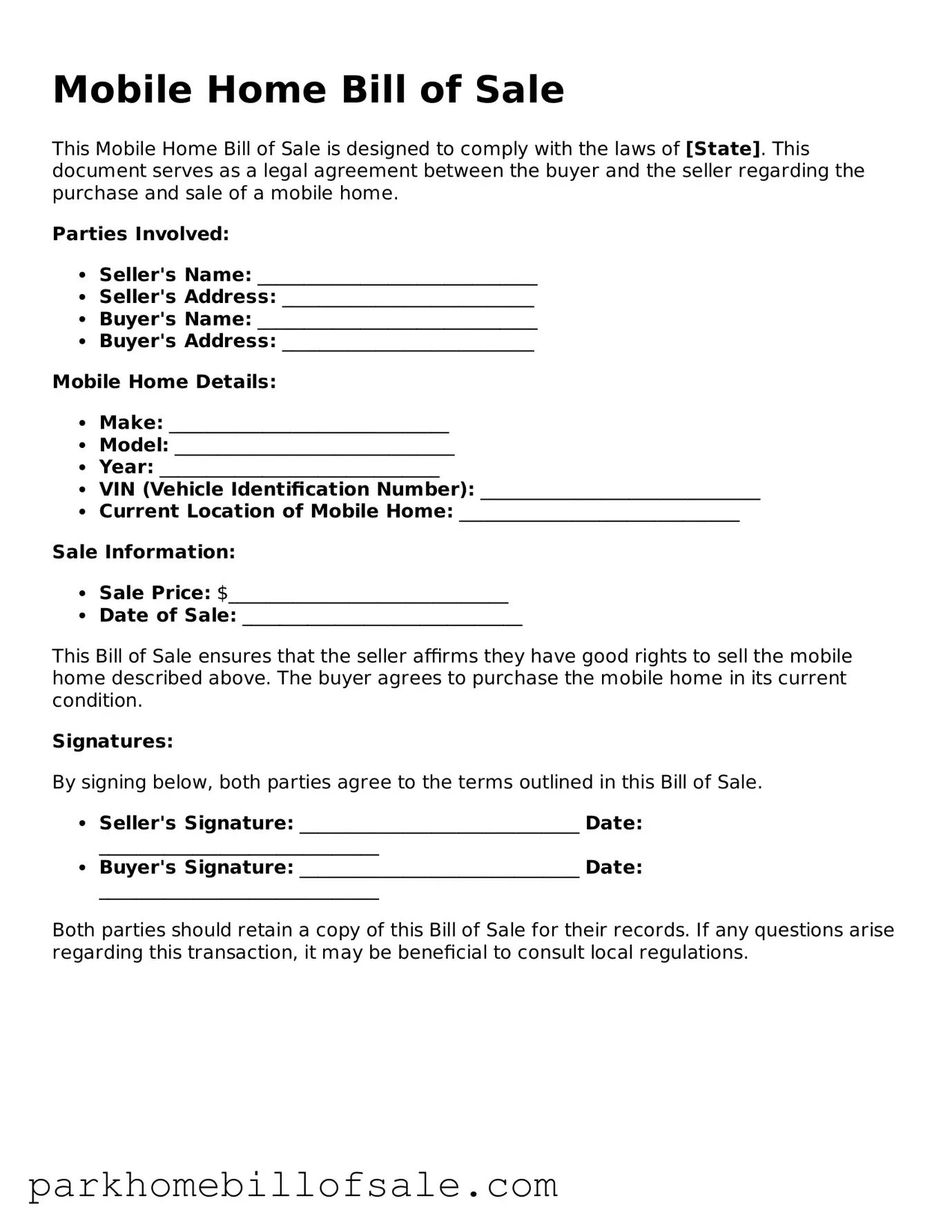Documents used along the form
When purchasing or selling a mobile home, various forms and documents are essential to ensure a smooth transaction. Each document serves a specific purpose, helping to protect the interests of both the buyer and the seller. Below is a list of commonly used forms that accompany the Mobile Home Bill of Sale.
- Title Transfer Document: This document is crucial for transferring ownership of the mobile home from the seller to the buyer. It must be completed and submitted to the appropriate state agency.
- Affidavit of Ownership: This form may be required to confirm that the seller is the rightful owner of the mobile home. It helps prevent disputes regarding ownership.
- Purchase Agreement: This contract outlines the terms of the sale, including the price, payment method, and any contingencies. It serves as a binding agreement between the buyer and seller.
- Inspection Report: An inspection report provides an assessment of the mobile home’s condition. It can reveal potential issues that may affect the sale and gives buyers peace of mind.
- Financing Documents: If the buyer is obtaining a loan to purchase the mobile home, various financing documents will be needed. These may include loan applications, credit reports, and lender agreements.
- Registration Form: In many states, mobile homes must be registered with the Department of Motor Vehicles (DMV) or a similar agency. This form ensures the mobile home is officially recorded.
- Disclosure Statements: Sellers may be required to provide disclosures about the mobile home, such as known defects or issues. This transparency protects both parties during the transaction.
- Moving Permit: If the mobile home is being relocated, a moving permit may be necessary. This document ensures compliance with local regulations regarding transport.
Understanding these documents is vital for anyone involved in a mobile home transaction. Properly completing and submitting each form can prevent legal complications and facilitate a successful sale.
